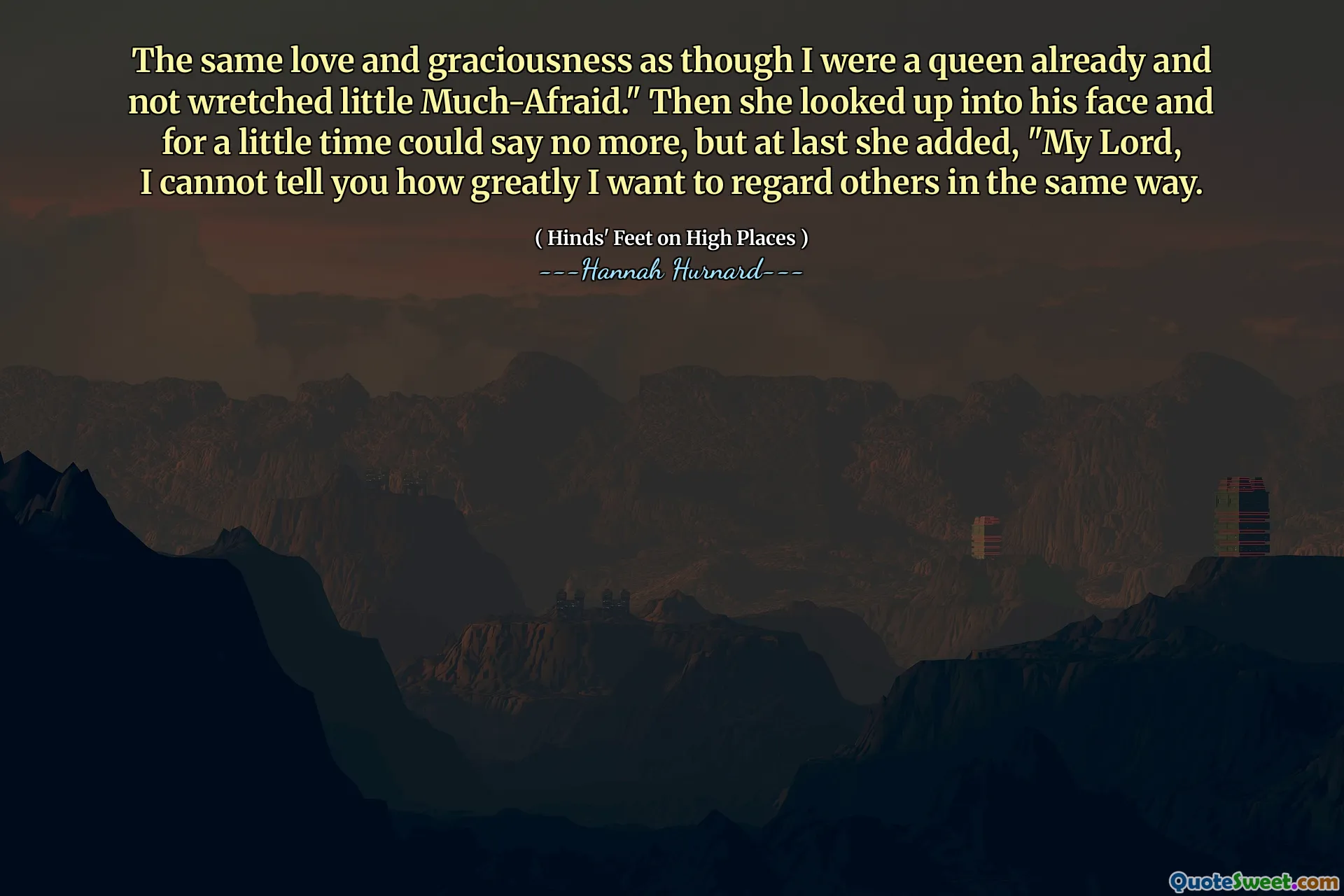
The same love and graciousness as though I were a queen already and not wretched little Much-Afraid." Then she looked up into his face and for a little time could say no more, but at last she added, "My Lord, I cannot tell you how greatly I want to regard others in the same way.
This quote poignantly captures a transformative moment of self-perception and spiritual growth. The speaker, identifying as "wretched little Much-Afraid," contrasts her humble, perhaps pitiful self-view with the grace extended to her as if she were a queen. This juxtaposition reveals deep themes of unconditional love and acceptance, even before external validation or personal perfection is achieved. The "Lord's" love represents an ideal of compassion that transcends one’s flaws, encouraging an inner change rooted not in merit but in grace.
The sequel to this revelation is just as compelling—the desire to treat others with that same graciousness. This expresses a higher ethical ideal: the aspiration to extend the dignity and respect received to every person, transcending judgments and social status. It reflects a spiritual maturity where love is not reserved for the worthy but is a universal gift, inspiring reciprocal kindness.
The setting within Hannah Hurnard's Hinds' Feet on High Places reminds readers of the journey toward overcoming fear and embracing divine love as a transformative power. This passage highlights humility alongside strength, where acknowledgment of personal frailty coexists with an embracing of one’s noble identity in the eyes of the divine. Ultimately, it challenges us to not only accept grace for ourselves but to allow it to reshape our relationships, cultivating a world in which every individual is regarded with dignity and love.






